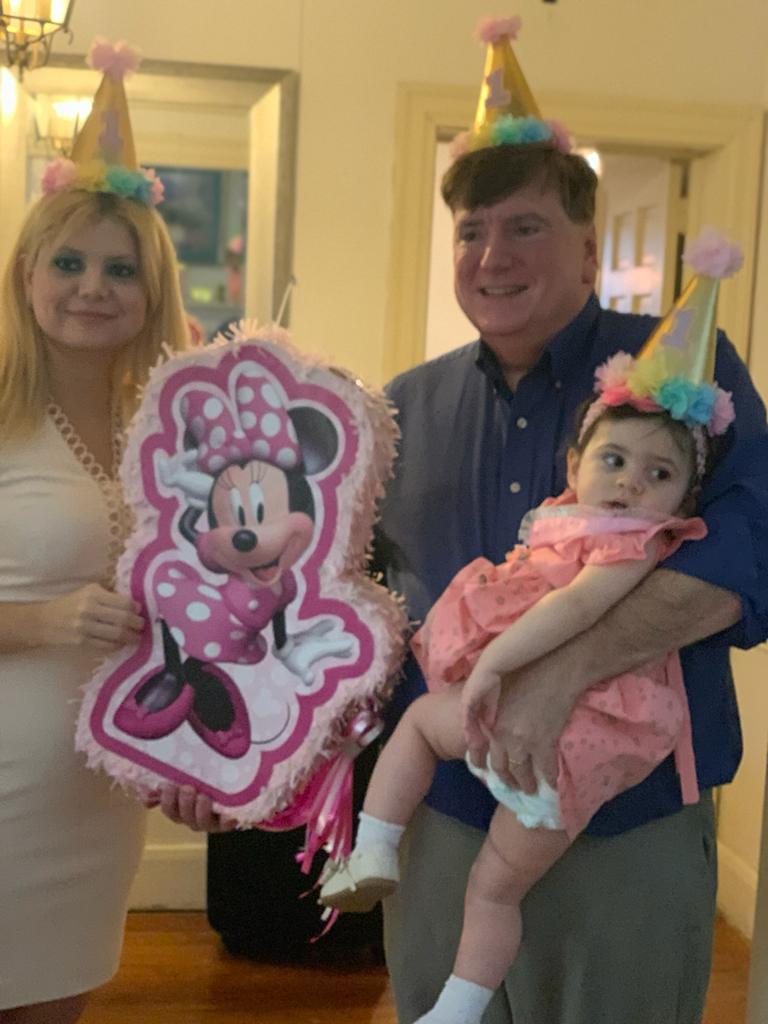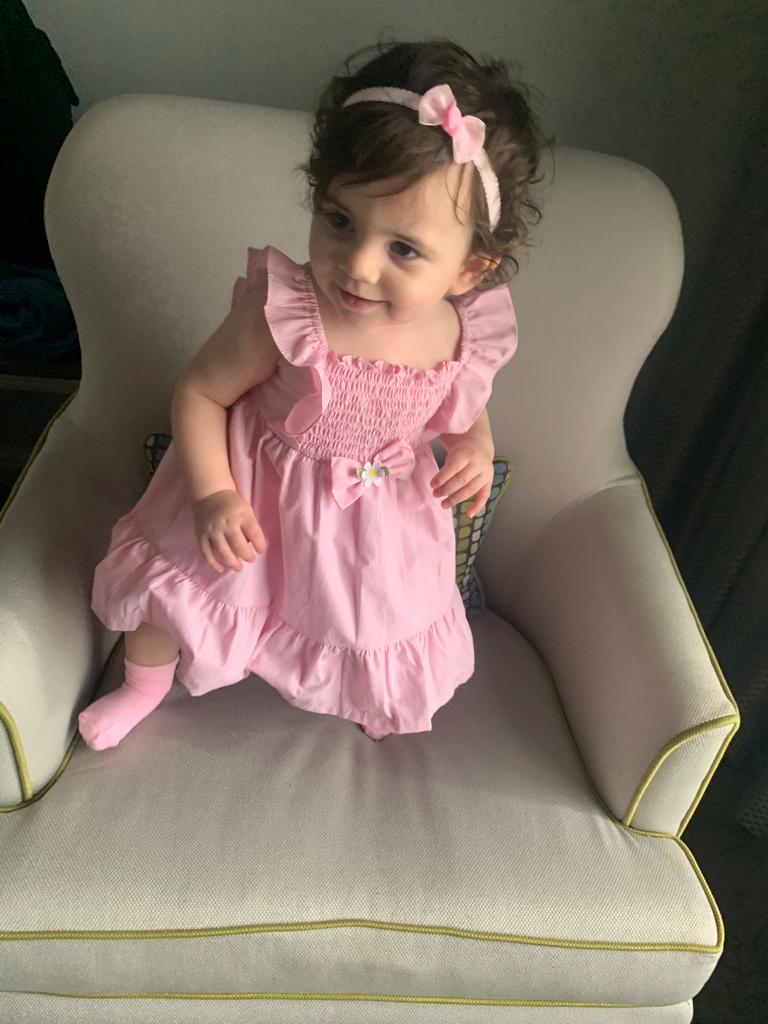Eric Meyer’s Story of Resilience and the Joy of Fatherhood
Veterans who served in Operation Enduring Freedom and Operation Iraqi Freedom experience rates of infertility of 16-18%, compared to the national average of 12-14%. Infertility, as defined in the study, refers to the inability to conceive with a partner after attempting for a period exceeding 12 months. Causes vary, but in active-duty members and veterans, service-connected injuries are one of the defining factors for the in vitro fertilization process. Navigating infertility treatment can be emotionally, physically, and financially taxing.
The Bob Woodruff Foundation’s VIVA program provides guidance and financial support to veterans who want to start or expand their families but may not qualify for Veterans Affairs funding. Here, we’ll share the stories of VIVA families.
Parenthood is a dream that many hold close to their hearts. For Air Force veteran Eric Meyers, being a father didn’t seem to be in the cards. After his first marriage ended, he threw himself into work, taking him across the globe. As the years passed, he resigned himself to the belief that fatherhood was not meant for him, a sentiment that persisted into his 50s. But a chance encounter in Ireland brought a miracle that transformed his world. Recently, Eric shared his family’s IVF story, filled with strength and the joy of becoming a dad.
Grounded
It was 1986, Top Gun was just out in theaters, and Eric was starting his dream of becoming an Air Force pilot. But six weeks before completing flight school, he was told he wouldn’t graduate.
“The day I was told by the flight surgeon that I’m not going to be a pilot was one of the most devastating things that ever happened,” Eric reveals.
Flying planes was no longer an option, but he still owed a time commitment to the Air Force, so Eric got his psychology degree and worked as an alcohol rehab counselor. It turned out to be an excellent fit. Since he was a kid, he could connect to people: a bout with pneumonia at five years old landed him in the hospital. As he recovered, he would walk around the ward, reassuring the other kids.
“It just came naturally. I kind of just knew what to say,” Eric describes his vocation. “This is something that I’ve had my whole life.”
Meyer’s career in the Air Force ended, but not before he received some more difficult news.
“I was honorably discharged, but that’s when the bipolar diagnosis came out,” Eric remembers. “[The diagnosis] was somehow related to flying, and I still don’t know quite how the pressures of being in flight school trigger a bipolar thing. I thought it was genetics. I didn’t realize that events can trigger it.”
Helping Families then Starting One
After leaving the Air Force, he got a job at the US Embassy in Moscow processing adoption visas, where he worked for 10 years. After moving back to the US, Eric continued to develop adoption programs in Kyrgyzstan, Ukraine, and Lativa and matched them with a US adoption agency.
In 2019, while working with a group that brought Catholic and Protestant teens together in Northern Ireland, destiny struck again when he crossed paths with a woman named Daphne. They connected while collaborating on the program to foster peace and understanding among the teens. Little did Eric know that this encounter would shatter his preconceived notions and reignite his desire to be a father.
The bond between them grew, and they got married, putting the idea of children at the front of their minds. To his surprise, Daphne expressed her desire to have children. The prospect of becoming a dad in his 50s, after decades of assuming it was an unattainable dream, was an incredibly happy surprise.
“I was thrilled,” says Eric. “I couldn’t believe that this opportunity was now back in my life, that there’s this option to be a dad again.”

However, their journey toward conception proved challenging. They faced difficulties when trying to conceive without assistance. Concerned, Eric sought medical advice and discovered that his bipolar disorder medication adversely affected sperm motility. Discontinuing his medication wasn’t something he considered, leaving the newlyweds disheartened and uncertain about their future as parents.
Sperm motility, typically assessed through laboratory analysis, is a crucial factor in male fertility as it determines the sperm’s capability to reach and fertilize an egg.
“I was crushed. For a couple of months, I was thinking, ‘Wow, I’m gonna be a dad!’ And then it was all taken away again,” Eric explains.
Not one to give up, Eric researched various fertility clinics and adoption options. Their quest led them to the Bob Woodruff Foundation, where they found a glimmer of hope. An out-of-the-blue phone call from VIVA Program Administrator Ann Philopena guided them.
Eric qualified for the Veterans Administration (VA) fertility program because his infertility was connected to a service-related injury. Still, certain expenses, including specific blood tests, hormone medication, or travel needs, are connected to the fertility process but are not covered expenses by the VA. The VIVA program helps cover these expenses.
“Without Ann’s caring intervention, that phone call, and her guidance — without the funds, without her being just a kind aunt who cared about our family — I wouldn’t be a dad,” explains Eric.
The In Vitro Fertilization Process
Daphne underwent the insemination process, both she and Eric holding their breath in anticipation. The entire process — egg and sperm retrieval, fertilization, and transfer — was challenging, but they both took their roles seriously.
“[Daphne] was phenomenal. Almost to the point of being, I would say, extra cautious. The nurse said that when you’re doing the hormone shots, you want it about two inches from the navel. Well, in my mind, that’s roughly around here,” he gestures. “Daphne went and got a measuring tape.”
Their by-the-book efforts bore fruit on the first insemination attempt, and Grace Elizabeth (below), their daughter, entered the world on March 25, 2022.
Now more than a year old, Grace brings so much joy and purpose to her parent’s lives. As Eric lovingly describes her, she is a sweet, adorable, and well-behaved miracle.
“Every time I wake up, I look and see this smiling face, and I’m like, ‘Oh my goodness, I get to start another day with her in my life.’ She’s just a joy,” Eric says.
Advice for Future IVF Parents

The ups and downs of IVF bring up emotional and physical challenges. Eric explains that being a supportive, attentive partner is also crucial. He says that backing from loved ones, support groups, and counseling can help navigate the emotional voyage. Connecting with others who have undergone IVF can also provide valuable insight and encouragement.
“We had our moments, but the fact that we were able to be there for each other, I think, was one of the keys to our success,” Eric explains. “This is not easy. And it’s a test. It’s a character test. You’re going to be challenged.”
Finding the right clinic is also important. “[With the first clinic] it was just an assembly line process for them,” says Eric. “We literally took a number and just went through the motion, and we didn’t feel comfortable. I mean, we’re making a family. This is not just medicine here.”
Each person’s IVF experience is unique, and what works for one may not work for another. It’s necessary to consult with your healthcare provider for advice specific to your needs.
“[Our current] clinic is wonderful. They’re super friendly, and the nursing staff is very loving,” Eric remarks. “And they know that this is not easy. So, they’re there for us, but you just got to be there for each other.”

With generous support from EMD Serono, VIVA connects veterans experiencing infertility with the resources and financial support they need to start or expand their families.









